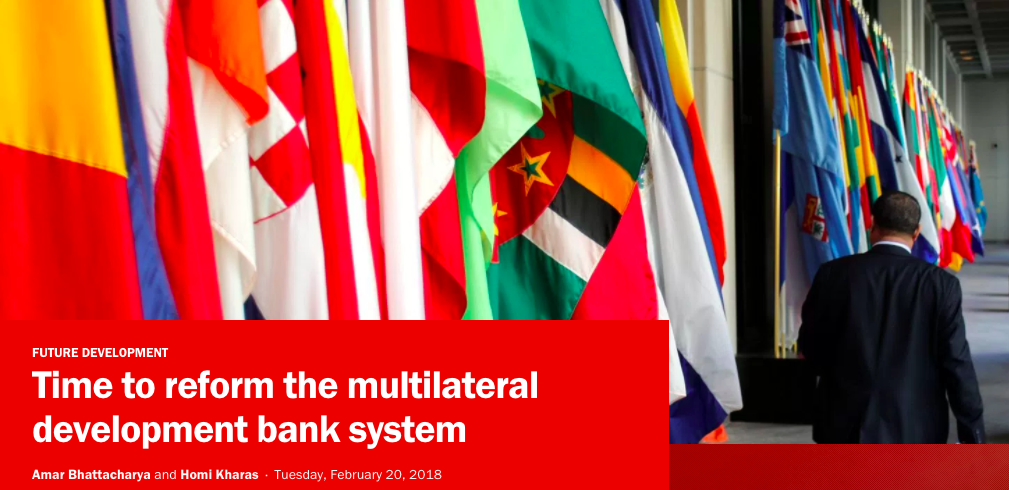In a recent paper prepared in collaboration with the Center for Global Development and the Overseas Development Institute, Amar Batthacharya and Homi Kharas of the G20 Eminent Persons Group on Global Financial Governance raise the alarm on the urgency for the multilateral development system to reform itself.
“More infrastructure needs to be built in the next 15 years than the existing stock of infrastructure in the world” they say, and most of it will be concentrated in emerging countries. Hence, “MDBs are uniquely placed to play a central role in realizing the ambitions of the new global agenda”. However given the sheer scale of the infrastructure gap, multilaterals need to quickly embark on a structural reform of their system to ensure the sustainability, resilience and affordability of these new infrastructure. The Eminent Persons Group’s recommendation to MDBs is fourfold: to maintain and reinforce their engagement with high-debt and upper middle-income countries, to improve their efficiency in fostering private sector investment, to enhance their cooperation, and to reform their governance to unlock their financial potential and expand their activity.
In this context, Messrs. Batthacharya and Kharas mention SOURCE platform as one of the first and most advanced initiatives from MDBs to address the above challenges, and praise its faculty to provide “support to national and subnational governments and public agencies in improving infrastructure project bankability, quality and delivery, in increasing investment and crowding-in private finance, in strengthening their technical capacities and abilities to manage risks”.
“Multilateral institutions are the best mechanism today for leveraging public resources”, they conclude, but “the greatest risk to the system lies in active inertia”.

